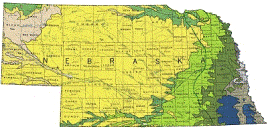United States Geological Survey

United States Geological Survey: Staff Publications
Document Type
Article
Date of this Version
2006
Citation
Published in The Endangered Species Act at Thirty, Volume 1: Renewing The Conservation Promise, edited by Dale D. Goble, J. Michael Scott, & Frank W. Davis (Washington: Island Press, 2006), pp. 296-306.
Abstract
As we write this in early 2005 there are several ESA-related pieces of legislation pending before Congress. Most of the proposed legislation is championed by Republican leaders from western states, who promise to strengthen the use of science or ensure fairer treatment of private landowners. Ir has become a perennial drama on the American political stage: "conservatives" rally to rein in a law that they believe has reached too far and "conservationists" mobilize ro defend the law that they believe offers the best ho pe for protecting biodiversity from relentless economic exploitation. There is much posturing, finger pointing, and, ultimately, political stalemate (Barry 1991) .
With the current political balance in the nation's capital, ESA reform is suddenly areal possibility. Idaho senator Mike Crapo, Rhode Island senator Lincoln Chafee, California representative Richard Pombo, and others have announced their intent ro forge abipartisan congressional coalition to achieve ESA improvement by moving critical habitat designation into recovery planning, strengthening the role of the states, and expanding incentives for habitat conservation on private land. Given these developments, it seems especially timely and important ro synthesize and reiterate ideas and recommendations from the three-year Endangered Species Act at Thirty project. The authors in this volume and its companion, The Endangered Species Act at Thirty: Conserving Biodiversity in Human-Dominated Landscapes, have many specific constructive recommendations that fit within three recurrent themes: the role of the federal government in species conservation, the emergence of new actors and institution al relationships, and the limits of the ESA as a rool for conserving biodiversity.
Included in
Geology Commons, Oceanography and Atmospheric Sciences and Meteorology Commons, Other Earth Sciences Commons, Other Environmental Sciences Commons

